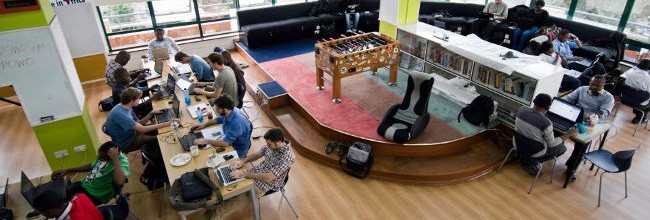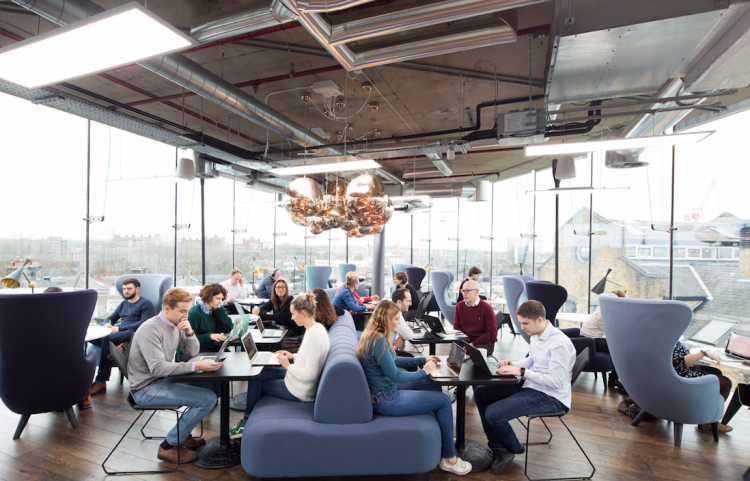Coworking is often considered to be a conduit to address various needs faced by communities, whether that be the lack of affordable infrastructure, community and support. For today’s freelancers, entrepreneurs and creative thinkers, coworking spaces have been a godsend, helping individuals to avoid isolation and find success in their professional lives. Yet, aside from the professional benefits, the coworking concept has been also been considered by some to be a valuable tool in addressing social issues.
Entrepreneurs, Vasili Sofiadellis and Paul Keursten, have realized the potential of utilizing coworking a social tool, and have recently announced their plans to open a coworking space that will cater to the needs of the countless individuals suffering from the current refugee crisis.
In October of 2015, they traveled together to Lesvos in Greece, an area of Europe that has witnessed one of the greatest concentration of refugees, the majority of them fleeing from Syria. We spoke with Vasili about their experience in Lesvos and how they plan to move forward with this inspiring space.
Hi, Vasili. Can you please tell us a bit about your (and Paul’s) experience with coworking and what led you ultimately travel to Lesvos?
I am a South African Greek National, based in Cape Town, and I have been visiting the birthplace of my parents, Lesvos, every year for the past 10 years. I have my own company, from which I plan to launch a socially oriented health tech accelerator.
Previously, I was running a PriceWaterhouseCoopers office within a local tech incubator and coworking space. In addition to my own projects, I am also a board member of the Silicon Cape Initiative, which is a not for profit entity focusing on supporting tech entrepreneurs. I am also a founding crew member of the StartupBoat, an initiative to find tech solutions for the refugee crisis. In 2015, We traveled to Greece twice with the goal of finding ways to support this crisis.
My colleague, Dr. Paul Keursten is an entrepreneur and consultant, who places innovation, entrepreneurship and learning at the core of his work. Paul focuses on supporting others to fully develop and utilize their talents in order to achieve success and contribute to a better world.
Together with Mark Seftel, Paul started OPEN, a collaborative workspace company that designs, builds and manages coworking and innovation spaces across South Africa. Paul’s work in OPEN builds on the experience he gained in Maliebaan45, launched in 2008, which was the first high-end, boutique coworking space in the Netherlands.
At the 2015 Coworking Europe conference in Milan, you and Paul presented your idea to create a coworking space that would cater to refugees. Can you please tell us a bit about the concept, and also about some of the ideas that you came up with at the unconference?
I work from Paul’s coworking space here in Cape Town, and upon returning from Greece, Paul and I discussed the refugee crisis. Paul was immediately keen to set up a coworking space in Lesvos through which we could create an enabling environment.
At the unconference, we presented our idea to several representatives of the coworking community who are very interested in supporting our project.
Read the rest at Coworking Africa!
Source: Coworking Europe





Recent Comments